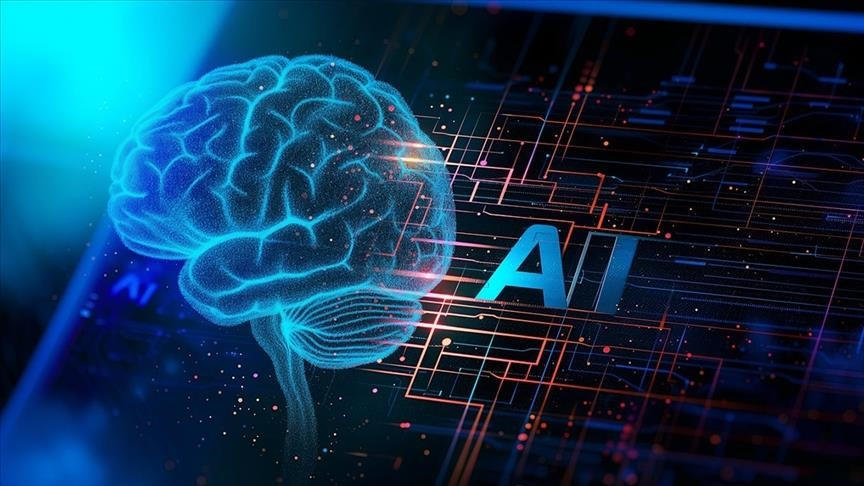
The widespread integration of Artificial Intelligence (AI) in various industries is likely to render many job sectors obsolete and increase layoffs, with those that adopt AI technology replacing those who do not.
According to the World Economic Forum's (WEF) Future of Jobs Report, automation and artificial intelligence (AI) might replace almost 85 million jobs worldwide by 2025.
The report also estimated that the shift in work division between people, robots, and algorithms would result in the creation of around 97 million new positions in the labor market. Several high-profile companies have recently announced plans to increase the use of automation and AI, resulting in workforce reductions.
IBM is planning to lay off around 10,000 employees across Europe. Similarly, Amazon has announced that it will terminate hundreds of jobs in sectors requiring physical labor to maximize efficiency from AI-focused processes. Digital media company BuzzFeed revealed that it laid off 12% of its workforce last December and an additional 15% in April.
The company also plans to shut down its news unit, BuzzFeed News. Walt Disney, one of the largest companies in the US entertainment industry, has announced plans to lay off 7,000 employees and eliminate $5.5 billion in costs. In response to AI’s negative impacts on employment, some governments are taking steps to mitigate these effects.
The EU recently launched the Digital Europe Program, aimed at investing in digital skills training and supporting small and medium-sized enterprises in adapting to digital transformation.
‘AI will be transformative for many professions' Ugur Karaboga, managing Partner at Türkiye’s job search and career development platform Yenibiris, said generative AI applications “will automate routine and repetitive tasks, increasing efficiency while still necessitating human labor.”
"While efficiency in routine tasks will increase, we cannot ignore the need for human power to use this technology and the fact that there are human elements in some service areas that machines cannot perform,” Karaboga told Anadolu, emphasizing the need for both employers and employees to be prepared for this transformative process.
Regardless of the processes and development of AI, it will always be necessary to offer personalized services, understand customer needs, and manage complex situations, he said.
“The important thing is how we adapt to this process." AI has been affecting various sectors differently, Karaboga said, highlighting significant progress in automation of routine tasks in production and logistics services. However, he believes that both sides of the workforce must make significant efforts to keep up with changes and stay competitive.
“What does this effort entail? Of course, it involves diversifying education and development opportunities to attract and retain the right talents. Talent shortages are a major issue in the new world. With access to talent becoming more challenging, we must successfully incorporate highly skilled young people from different fields into the workforce. We need to engage with them frequently and understand their expectations from the business world," Karaboga said.
He added that AI will transform many professions, with data mining being one of the foremost fields. ‘Generative AI will affect mental labor experts more’ Fatih Uysal, CEO of Kariyer.net, another Turkish online job search and career development platform, shared the results of an analysis conducted by the company on the changes and transformations in the employment market.
According to the analysis, the demand for AI-related positions by employers increased by 81%, while the supply for these roles rose by 11%. Uysal said that these results indicate a growing need for candidates with AI skills in the future, with some professions requiring new skills and others disappearing entirely.
He pointed out that the technology, media, and digital industries will be the most affected by automation and AI developments in the global labor market.
"Previously, AI was thought to develop automation mainly in blue-collar positions. However, today, it is said that generative AI will affect mental labor experts more,” he said.
Referring to a report by global management consulting firm McKinsey, he said that jobs requiring a high level of education have the highest potential for automation with generative AI.
According to the report, while 54% of jobs requiring a high school diploma or less can be automated without generative AI, this rate jumps to 63% with generative AI. For master’s and doctoral-level jobs, this rate rises from 28% to 57%.
“Therefore, highly educated candidates will need to develop their AI skills in the coming period,” Uysal said. Uysal highlighted that as AI technologies advance, new career opportunities will arise.
"As generative AI integrates and develops within business processes, existing jobs are transforming, and new job fields are emerging. It is possible to see positions like Prompt Engineering, Data Labeling, Data Cleaning, AI Legal Compliance Specialist, AI Trainer, AI-Supported Solution Experts in Health and Customer Relations, and many bot/assistant services emerging," he concluded.




1721893455-0/BeFunky-collage]-(25)1721893455-0-270x192.webp)



-(1)1717678110-0/Kendrick-(1)-(1)1717678110-0-270x192.webp)









COMMENTS
Comments are moderated and generally will be posted if they are on-topic and not abusive.
For more information, please see our Comments FAQ